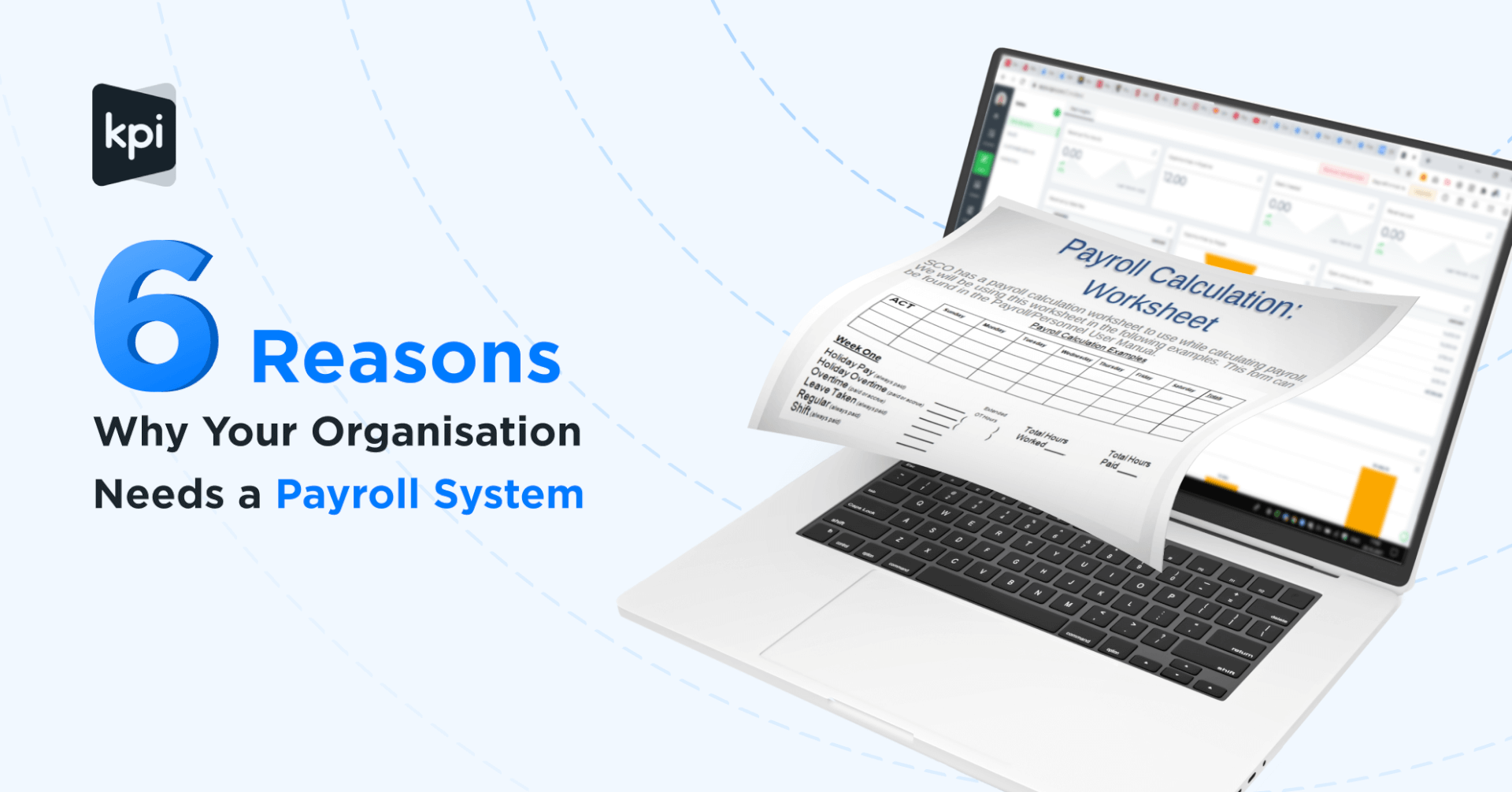
6 Reasons Why Your Organisation Needs a Payroll System
Payroll management software has become an integral part of many SMEs as it comes with a host of advantages that ensure efficiency, timeliness, accuracy, precision and cost effectiveness. Investing in the right payroll software can help SMEs to run their operations in a hassle-free way but also will help the company to reach success.
But why do small businesses need this software? Let’s take a deeper look
- Automation
The right payroll system helps to simplify the operations of the SMEs by automating specific processes that would otherwise take a long time. It enables businesses to streamline company procedures, particularly when it comes to payroll.
Furthermore, the payroll system allows for automatic direct payments of salaries and other benefits into employees’ bank accounts. Payroll is disbursed to employees’ bank accounts at predetermined intervals using automatic direct deposits throughout the day. With the proper software, SMEs can get more done in less time and concentrate on revenue-generating tasks to increase sales and productivity.
These are the processes that payroll software can help to automate:
- Information Collection – Gathering employees’ data and ensuring that all details follow a consistent format is the most time-consuming operation in manual payroll. Fortunately, with the use of digital technologies, employees may efficiently encode information without worrying about the structure because the program does it for them.
- File Transfer – Digitising documents allows seamless file transfer. This way, SMEs will eliminate wasting time uploading data and waiting for the recipient to validate it. Plus, the payroll system serves as a central location for all payroll-related files.
- Data validation– Verifying the accuracy of employees’ paid hours and calculating the comparable remuneration. It also exposes you to the danger of human error. Organisations can delegate the calculations to the program while still ensuring that all requirements, such as salary increases and net costs, are met.
- Task management -Allocating tasks to the employees in charge of processing them is another component of task management that companies may automate. For example, once the system has finished computing each employee’s payroll, it can automatically publish payslips. SMEs’ accounting and HR departments only need to confirm the entries with a final check before publication.
2. Data Accuracy
Using online payroll software enhances the productivity of overall operation and, as a result, reduces the risk of errors that could lead to angry frontline employees. That means you’ll have one less thing to worry about, and it’ll also help you keep your most exemplary employees where they belong.
By employing an automated system, you can reduce the costs associated with human factors or other faults. It also saves time by reducing the amount of data sent back and forth between your staff and the HR or accounting departments.
3. Compliance Improvement
One of the primary benefits of payroll programs is to help SMEs to ensure tax compliance. This is one of the crucial business payroll management factors all enterprises should know.
The use of payroll software can help businesses that comply with their countries’ laws. This includes keeping accurate records of the employment of employees, their hours worked, and whether they received overtime pay.
All data will be stored in the cloud and the system ensures that everyone has access to the most up-to-date information from their computer, greatly enhancing efficiency. You can retrieve your data from any location with the correct software. This allows you to keep track of your staff regardless of their location. In this manner, business owners can see exactly what their employees are earning or accomplishing without having to monitor them continually. SMEs will save time and access the system from anywhere.
4. Cost and Time Effectiveness
Another advantage of the payroll system is that it saves both time and money. SMEs won’t have to manually enter all of the data, allowing organisations to run more smoothly and efficiently. Efficiency always leads to cost-effectiveness in terms of money savings. As previously said, using a payroll system to automate some strenuous payroll activities might free up time for SMEs employees to focus on their companies’ goals. This element benefits them by optimising their knowledge and skills, and it also helps to earn more.
5. Customization
Payroll software also enables easy and specific customization to match the business’s needs. Some payroll software allows users to enter various data into the report format, such as sales numbers, hours worked, average salary, and other information.
6. Data Security
The security of each organisation’s data is essential and their salary data is particularly sensitive. Payroll files contain personal information that needs to be protected, such as postal addresses, birth dates, social security numbers, bank account information, etc. By using the right payroll system, SMEs can ensure that this information is securely locked and cannot be viewed by anyone outside of the organization.
Conclusion
Using a payroll system gives SMEs more control over the process, lowering employee turnover and increasing profitability. It also saves money by reducing paper-based errors and removing the need for labour. When properly applied, this tool can improve the quality of work and minimise employee unhappiness, allowing the organisation to progress toward its growth objectives.
To learn how kpi.com all-in-one payroll and HR solution can help you solve these problems, schedule a complimentary demo of our system today.